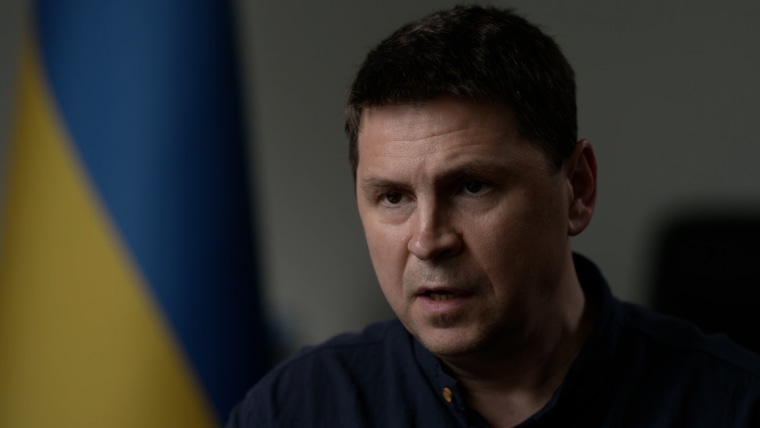WASHINGTON — CIA Director William Burns recently traveled to Ukraine where he met with President Volodymyr Zelenskyy and Ukrainian intelligence chiefs, a U.S. official confirmed to NBC News Saturday.
The official, who was not authorized to speak publicly about the trip, said Burns had traveled regularly to the eastern European country “since the beginning of Russia’s recent aggression more than a year ago.”
“As with other trips, the director met with his Ukrainian intelligence counterparts and President Zelenskyy, reaffirming the U.S. commitment to sharing intelligence to help Ukraine defend against Russian aggression,” the official said.
The official noted that the trip, first reported by The Washington Post, was before Wagner mercenary group chief Yevgeny Prigozhin launched a short-lived armed rebellion and marched his troops toward Moscow more than a week ago before he suddenly reversed his decision and announced a deal with the Kremlin.
It had therefore not been a topic of discussion.
Republican presidential candidate Mike Pence also made a surprise visit to Ukraine on Thursday, becoming the first Republican presidential candidate to do so.
Pence, who also met with Zelenskyy, has been outspoken about his support for Ukraine, and the move sends a resounding message that he believes the U.S. should play a leading role in the country’s fight against Russia.
It puts Pence in a unique position within the GOP, once dominated by hawks who advocated against growing Russian influence but is now led by a man who has repeatedly praised Russian President Vladimir Putin, and whose base is largely uninterested in supporting Ukraine.
The day after Pence’s visit to Ukraine, three senior U.S. officials said the U.S. was leaning toward providing cluster munitions, or dual purpose improved conventional munitions, or DPICMs, to Ukraine. Two of the officials said an announcement could come this month, but one declined to provide a timeline for an announcement.
DPICMs are surface-to-surface warheads that explode and disperse multiple small munitions or bombs over wide areas — bringing more widespread destruction than single rounds. The rounds can be sharp charges that penetrate armored vehicles, or they can shatter or fragment to be more dangerous and deadly for personnel.
Ukraine has been asking the U.S. for DPICMs since last year, but the idea has met with resistance because of an international treaty, called the Convention on Cluster Munitions, bans the transfer, use and stockpiling of the weapons.
The U.S., Ukraine and Russia are not signatories of the treaty, but more than 100 countries are, including many U.S. allies.
Many human rights groups oppose their use because of concerns that unexploded bomblets, or duds, could explode after battle, potentially injuring or killing innocent civilians.
Inside Ukraine, officials reported that fierce clashes continued Saturday in three areas in the country’s Donetsk region, where Russia has massed troops and attempted to advance.
In the latest of regular social media updates, Ukraine’s General Staff named the outskirts of three cities — Bakhmut, Lyman and Marinka — as front-line hot spots, and said that Russia over the previous day had staged unsuccessful assault attempts there.
Meanwhile, in the city of Kherson, two children were wounded by shelling that hit residential quarters, Oleksandr Prokudin, head of Kherson’s regional military authority, said in a post on Telegram.
The 9-year-old girl and 15-year-old boy were receiving medical attention after a shell hit their house, he said.
Courtney Kube reported from Washington and Leila Sackur from London.
Associated Press contributed.







